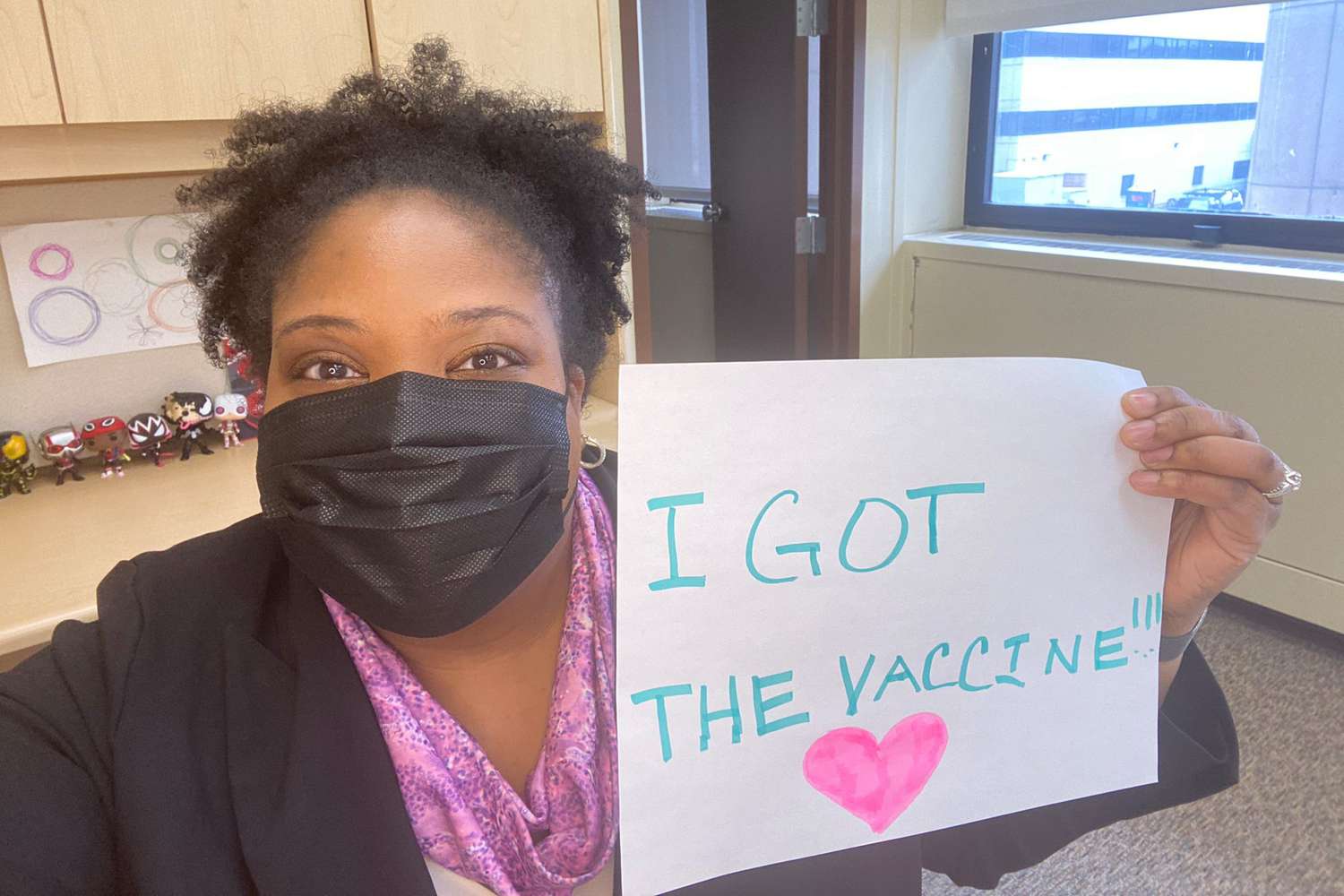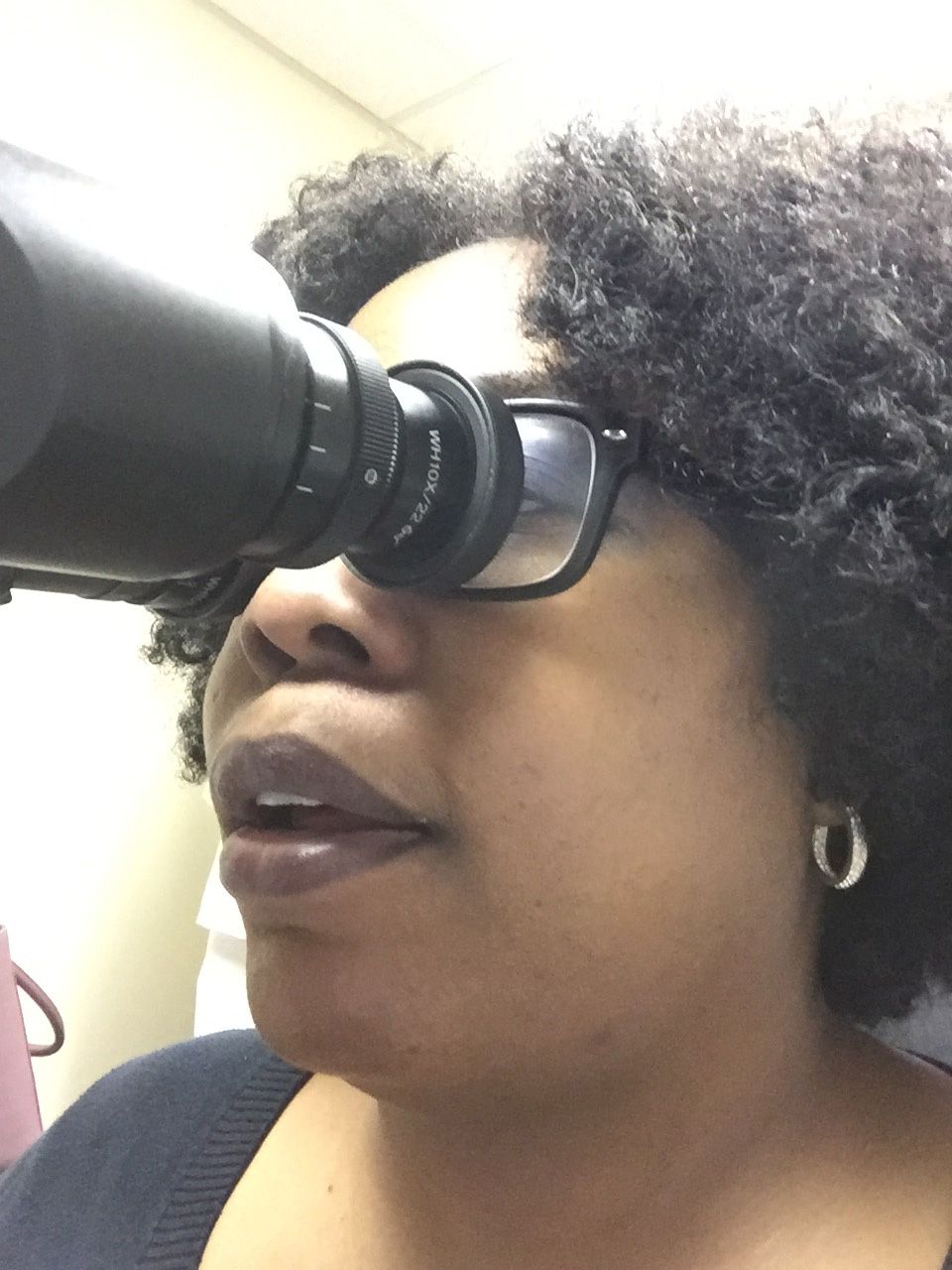
Dr. Valerie Fitzhugh, an associate professor of clinical pathology at Rutgers, had just begun her role as interim chair of the university hospital's pathology department when the world started shutting down due to COVID-19. Suddenly, she found herself heading up a department at a time when pathologists were inundated with COVID testing, while simultaneously trying to keep her elderly father healthy and facilitate remote schooling for her 6-year-old-daughter and 4-year-old son. "I had never been more exhausted," she said. "I was holding my life together with bubblegum and paperclips, and I got it done."
In the midst of all of the chaos, Fitzhugh also saw a need for people of color to join the vaccine trials, and decided to enroll in one. She shared the news with her large Twitter following — then updated them in January to let them know that she had indeed received the vaccine, rather than the placebo. This is her story about why it was important for her to be part of the trial, and to share the news publicly, as told to PEOPLE.
It took me about a week to decide to do the trial. My husband and I discussed it, and he had no desire whatsoever for me to do it because he was afraid something would happen to me, which is a reasonable fear.
I have a 6-year-old and a 4-year-old. And I recognize that had something happened to me, he'd be raising them alone, and he'd have to tell them someday, "It's a noble thing, but this is what happened to Mommy." So there was a lot that went through our minds in that regard.
In the end, I did the trial because representation of people of color in clinical trials is so important to reestablish — or I should say, to establish — more trust in medicine. We know the history of medical experimentation in America on populations of color, so I understand the mistrust angle of it.

But the world in terms of medical trials is different, and you can't get away with harming people because of who they are. So if what I did will help engender at least a trust in this vaccine and in this process, then I've done my part.
RELATED: Why I'm Getting Vaccinated: The Police Chief Who Wants to 'Reassure Skeptics' — and Keep His Force Healthy
For me, [deciding to enter the trial] wasn't a lot of hemming and hawing. It was just the right thing to do.
And it's funny. The day that I had the symptoms, my husband looks at me laying on the couch and he just goes, "You got the vaccine. I know it, and I want it."
In terms of encouraging communities of color to get the vaccine, one thing I would say is: I think it's more risky to get COVID than it is to get the vaccine. You might have side effects the next day from a vaccine; big deal. But we still don't know how people who have had COVID are going to turn out. And I think that's an important message: It's not worth the risk.
I've been doing some local community outreach initiatives. I'd like to see this administration put together a task force of physicians of color from across the country. Can we latch on to a virtual church service on a Sunday morning? After church is over, just say, "Can you guys stick around for five minutes? We want to talk about this important thing." We need to go where the people are.
I decided to tell my story on social media because that's where the people are. I'm not saying this as, "I'm a doctor, so you should do it." Yeah, I'm a doctor, but that's my job. That doesn't create my character, or who I am as a human being. I'm just like them. I am no different.
There are going to be minds that we're not going to be able to change. And that's okay. But if we educate them, we're doing our job.
People are going to need to turn to their own physicians more than ever before to ask questions about this vaccine. But there are historic reasons for skepticism about doctors in communities of color. People have to be able to feel some sense of trust, but we also have to acknowledge the mistrust. That's why a lot of us the profession who are physicians of color will extend themselves on social media to try to help answer questions and ease some of the concern.
RELATED: Why I'm Getting Vaccinated: A Mom of 3 Kids with Heart Defects Who Must Stay Healthy to Be Their Caregiver

I know there's a lot of fear around, "The vaccine was [developed] too fast." But we've thrown so much money into it. And the rest of science pretty much stopped. People weren't doing anything else because of how rapidly people were getting sick, and how rapidly people were and are dying. Of course you can develop a vaccine in nine months if you're throwing millions of dollars into it.
It wasn't that the science was skipped. And I can say, as a person who… I'm still in a trial, and I'm fine. And I got the vaccine. I feel like the words have more weight because I know I got vaccinated. So I'm not just saying, "Oh, let's take it. Don't worry." I'm saying I am a living, breathing example of "It's fine."
Before being released to the public, vaccine-makers went through large, lengthy clinical trials to ensure that their product is completely safe. On Sept. 8, nine of the leading vaccine makers — including Pfizer and Moderna — signed a pledge vowing to follow "high ethical standards" and not rush a vaccine into production before it is proven to work.
As information about the coronavirus pandemic rapidly changes, PEOPLE is committed to providing the most recent data in our coverage. Some of the information in this story may have changed after publication. For the latest on COVID-19, readers are encouraged to use online resources from the CDC, WHO and local public health departments. PEOPLE has partnered with GoFundMe to raise money for the COVID-19 Relief Fund, a GoFundMe.org fundraiser to support everything from frontline responders to families in need, as well as organizations helping communities. For more information or to donate, click here.
Source: Read Full Article
